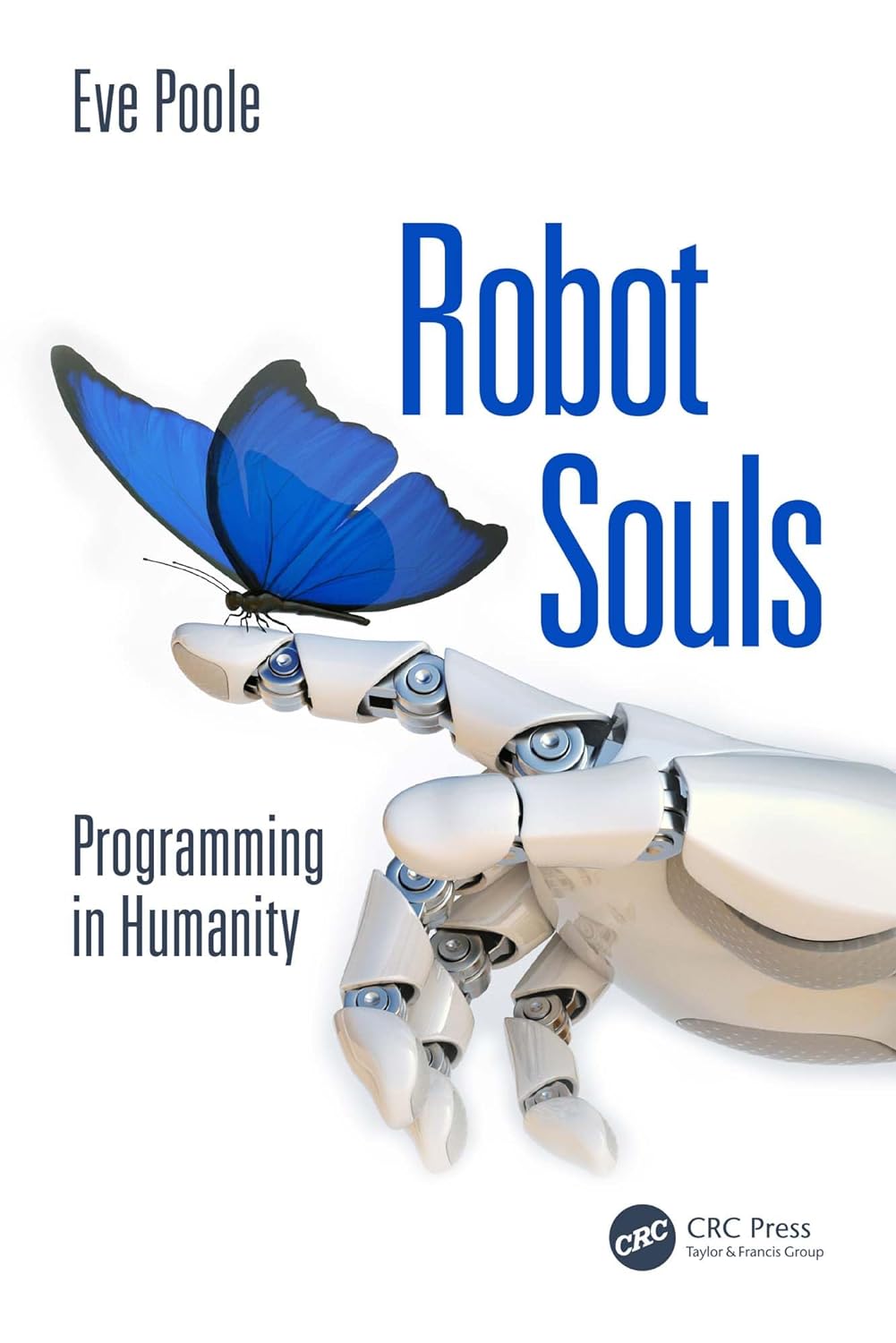It is a beautiful book – more essay than business tome, which weaves together a mix of stats, stories and literature to put forward a compelling tale of humanity and the move towards digitising ourselves. There’s no handy ‘five points to implement’ at the end of each chapter (normally I do like those, but they just wouldn’t work in this situation), rather a flow of narrative that unpicks humanity and reknits it in AI form.
Poole hasn’t been afraid to bring in Science Fiction, which is far too often dismissed as irrelevant. But it’s not. She neatly proves this with reference to Asimov’s Robot Laws and Tegmak’s ‘Dooms’ and shares the point that, often, SF actually is ‘Speculative Fiction’. Alongside this are regular references to contemporary fiction, the classics and a range of articles. It makes it rich and rewarding to read. We also see the works of the more recent thinkers such as Goleman, Gladwell, Frankel and Ariely drafted to help build the narrative.
All of this comes together to build on that foundational premise – the need to bring in the messy, error-prone, unreliable, unquantifiable elements of us. Poole starts with a short look at AI, what it is (and isn’t), the current thinking around its impact and the ways in which the future could go. This part is light on doom-mongering, instead favouring a ‘things are emergent’ approach that is underpinned by her notations that the situation has probably already moved on. With this foundation in place, the book then dives into those ‘junk’ elements.
You could argue that Poole gives a very slimmed down view of humanity, that it would take several encyclopaedias to achieve a full description. Yes, and no. Sure, we are complex, but the key factor here is what parts of us are critical for AI to utilise. Her list is very interesting, and makes you rethink what we actually mean by AI. If it’s not emotional, if it can’t be intuitive, if it can’t make mistakes… is it THAT smart?
This book feels like a story currently being lived, and only half-way through. And that’s kind of where Poole leaves us. She uses a lot of storytelling examples in the book (which are just a joy to come across) and her ending point is very much a question around how we will shape the next chapter. The message is clear – over to us, but be careful. Again, it’s not a scare-tactic, more of a nudge for us to think in the right direction (or get an AI tool to do it for us).
Back to my earlier point. This isn’t a business book in the traditional sense. You won’t dash out into your organisation with plans, ideas and actions to trial. You’ll be thoughtful, better educated and have a different view on AI. Also, when someone asks you if it is going to take over their job/the world, you’ll have some pretty impressive opinions to share.
One final point. I loved the last line.
Published by Routledge
Chris Preston is a culture expert and one of the founding partners of The Culture Builders









